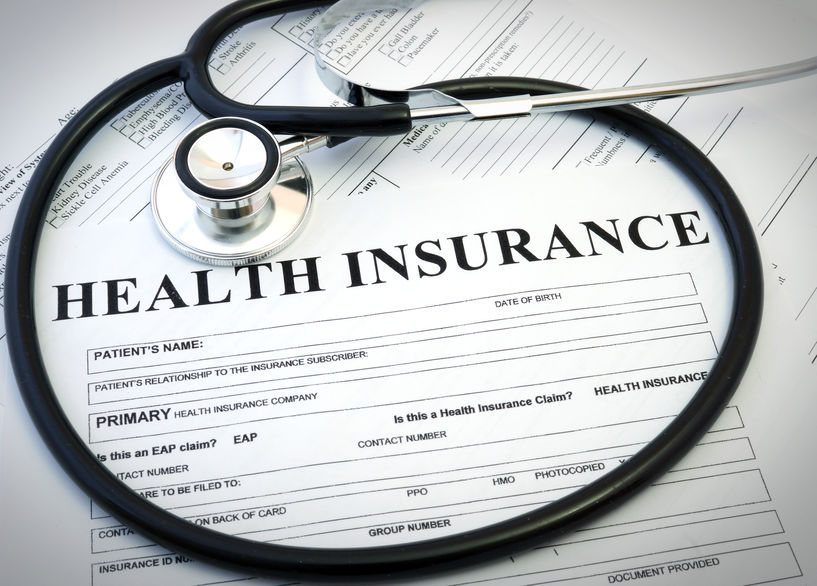Concequnces If I Don't Sign Up for Health Insurance
Feb 20, 2024 By Susan Kelly
Workers' portion of premium expenditures increased by 40%, faster than their wages. And for the nearly half of the population in the United States that does not have access to a health insurance plan via their employment, the expenditures may be far higher. Because of this, it may be tempting to forego purchasing health insurance, particularly if you have a tight budget and are having trouble affording other essentials or if you are young and healthy and don't believe you will require a great deal of medical attention shortly.
Although health insurance is not required by law in the United States, some citizens of certain states may be subject to fines if they choose to go without coverage. If you can find a method to pay for it, health insurance should be your fourth priority after a safe place to live, sufficient food to eat, and reliable transportation to your place of employment. And even if you don't, you could still have other choices.
What Consequences Will I Face If I Do Not Have Health Insurance?
The Affordable Care Act (ACA) was designed to make health insurance more accessible, particularly for those who previously could not afford it. The goal was to expand healthcare access and make it more affordable across the board by reducing the number of uninsured individuals and distributing healthcare costs more evenly.
One of the mechanisms the ACA used was to impose penalties on those who did not obtain health insurance, to encourage enrollment and avoid situations where individuals could not pay for healthcare services. However, this mandate, known as the individual mandate penalty, was effectively eliminated in 2019 at the federal level, meaning there is no longer a federal penalty for not having health insurance.
Despite the elimination of the federal penalty, some states have implemented their own health insurance mandates. If you live in one of these states and do not have health insurance, you may still face a state-level penalty. It's important to check the specific regulations in your state to understand your obligations and any potential penalties for not having health insurance. This will help ensure you are in compliance with local laws and avoid any unexpected fines.
Reasons For Getting Health Insurance
Although purchasing health insurance may not be at the top of your spending priorities, there are many compelling reasons why you shouldn't put off doing so. The costs of treating an unforeseen medical emergency, such as appendicitis or a broken limb sustained in an accident, may quickly add up. Casting a fractured limb may have a price tag of up to $7,500, according to HealthCare.gov. If you need to remain in the hospital for three days, you should be prepared to pay close to $30,000 for the privilege.

Medical debt is a significant issue that can potentially lead to bankruptcy. For instance, if you were involved in a car accident and sustained severe injuries like broken legs, the costs could accumulate rapidly. Imagine being charged $15,000 for treatment of your broken leg and an additional $30,000 for a three-day hospital stay. Suddenly, you find yourself facing a daunting $45,000 in medical debt.
While many hospitals offer payment plans to help manage these expenses, the minimum payments might still exceed what you can afford. Consequently, it could take years, or even decades, to clear such a debt. This situation highlights the importance of having health insurance, which not only assists in handling unexpected large expenses but also supports obtaining preventative care.
Preventative treatment, covered by most health insurance plans, is crucial as it reduces the likelihood of requiring more complex and costly medical interventions later on. Regularly addressing and managing minor health issues like ear or sinus infections can prevent them from escalating into more severe health problems. This approach not only helps in maintaining better overall health but also keeps medical costs more manageable over time.
Are There Affordable Options?
It is possible to get reasonably priced health insurance through several different methods. Under 26, you can still be eligible for coverage under your parent's medical insurance policy. 9 You can also obtain coverage via a domestic partner or spouse if you are married. Other consumers should investigate the health insurance options provided by their employer, as well as independent health insurance options, which are plans that may be accessible outside of the marketplace exchanges established by Obamacare.

However, enrolling in coverage via the Obamacare marketplace that serves your state may be the most accessible and cost-effective choice. These marketplaces, also known as exchanges, are online resources that may help individuals locate health insurance policies that meet their specific needs. There is a wide range of prices for these plans, and if you qualify, you could get a tax credit that considerably reduces your monthly payment.
Time Frame to Enroll
Most individuals can sign up for a health insurance plan via the marketplace during the open enrollment period for Obamacare plans, which occurs around a particular time of the year. These dates vary annually, although they typically occur in the fall for policies that begin in January. If you miss the open enrollment time, you won't be able to sign up for health insurance for another year unless you experience a life event that makes you eligible for a particular enrollment period, such as being laid off from work or having a child, or getting married.








